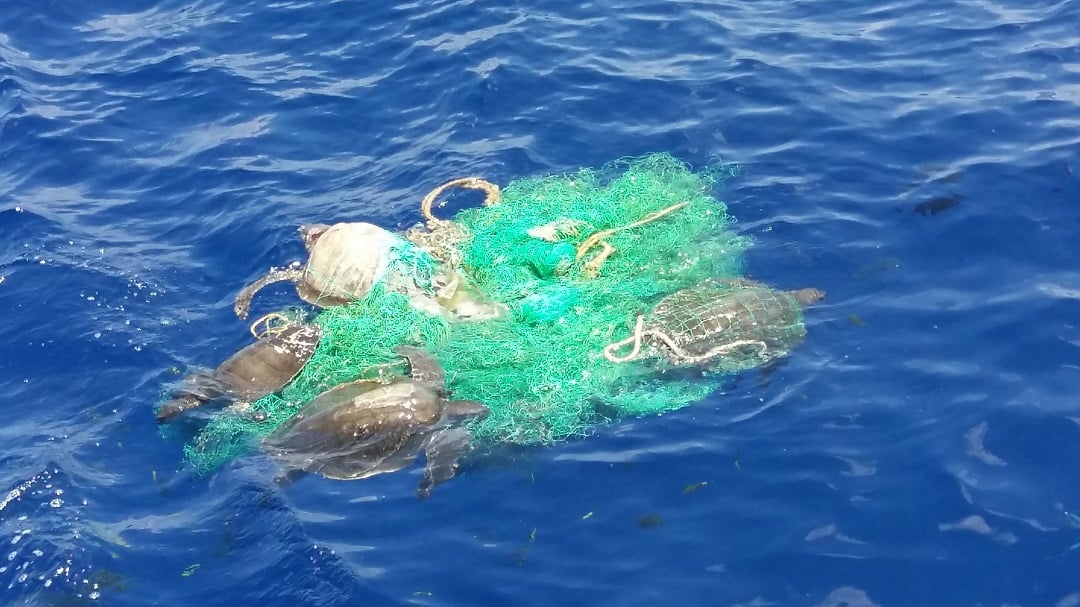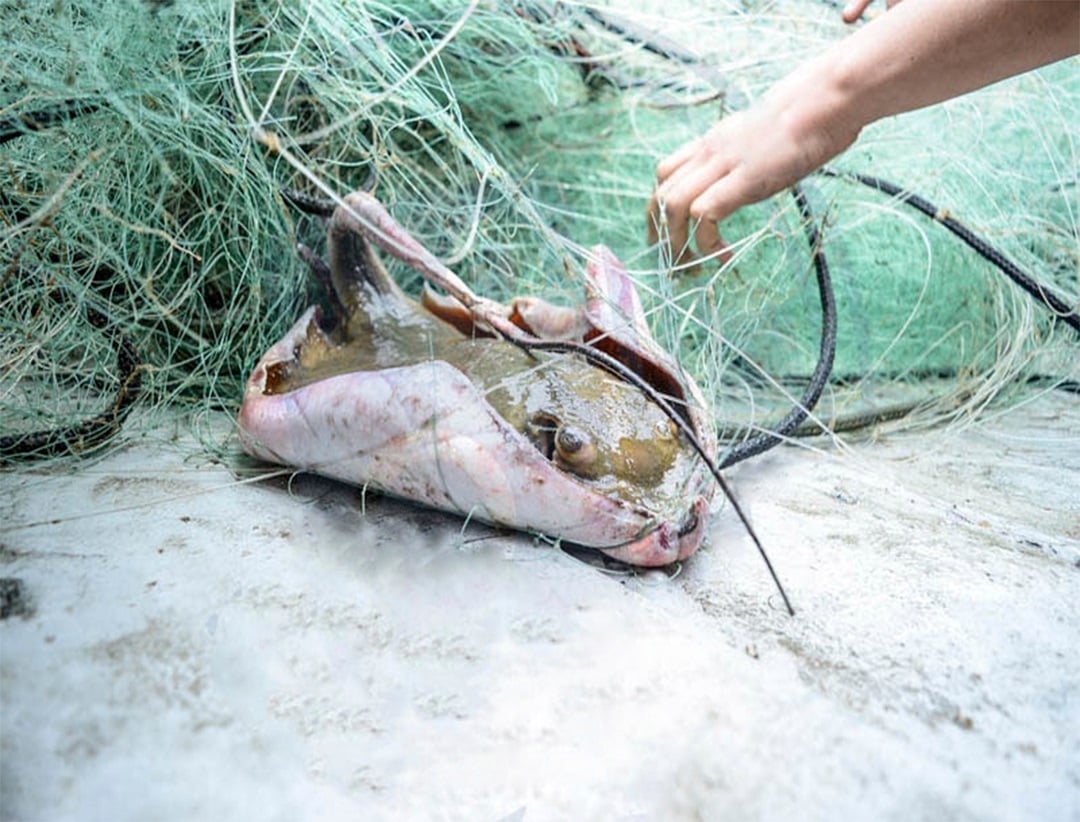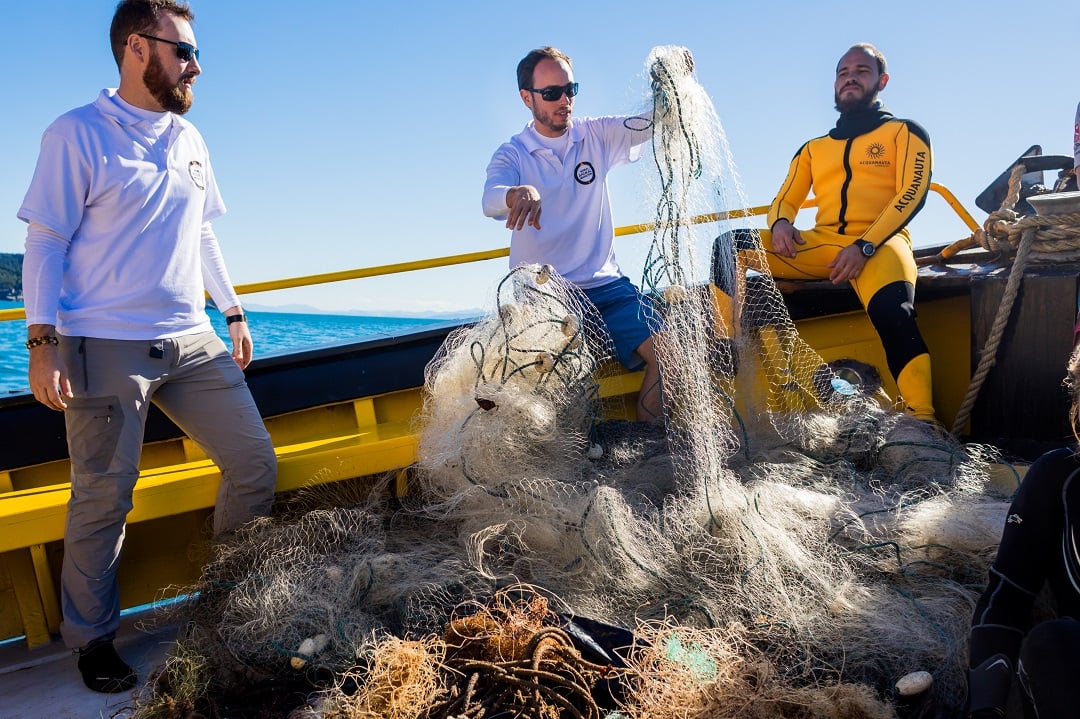Our partner rehabs and releases its first two harbour seals
News
The seals, Higgins and Orchard, were released back into their ocean home at Head Beach in Phippsburg, Maine on Sunday, October 8.

The scale of the ghost gear issue is staggering – 640,000 tonnes of ghost gear is left in our oceans each year. That’s more than one tonne every minute!
With all of this ghost gear floating around the ocean, marine animals get trapped and injured or killed as a result. Sadly, ghost gear traps more than 136,000 marine animals each year.
“Ghost gear” is considered any fishing gear that has been lost, abandoned, or otherwise discarded in the ocean and is no longer under the control of the fisherman who set it. This can include nets, lines, ropes, pots, traps, and other equipment used in fishing. The term "ghost gear" refers to the fact that it is often difficult to locate and remove this equipment, and it can cause ongoing harm long after it has been lost or abandoned.
Other common terms include abandoned, lost or otherwise discarded fishing gear (ALDFG) and derelict fishing gear (DFG).
The cause of ghost gear is primarily snagging, entanglement with other fishing gear, weather conditions, and gear being incidentally cut by marine traffic crossing. Intentional discard by harvesters is less common and is usually caused by illegal, unreported, and unregulated (IUU) fishing where vessels may cut their gear loose to evade capture by authorities.
IUU fishing boats are more likely to lose or abandon their gear to remain undetected which creates more ghost gear. There are a few ways in which ghost gear is lost or abandoned by boats fishing illegally:
IUU fishing gear can involve gear that is not properly marked or registered, and when such gear is lost or abandoned it is harder to find and more likely to become ghost gear.
Ghost gear knows no borders, wreaking havoc on our oceans. It's time to join forces and work together to combat this global menace.
This marine pollution is some of the most harmful debris found in our oceans and can be fatal to fish, marine mammals, and other marine life, poses a navigation hazard, and breaks down into other forms of pollution such as micro-plastics.
Ghost gear can continue to entangle and trap marine life, causing harm to wildlife and habitats, and can remain in the ocean for many years, continuing to cause damage.
Ghost gear traps, injures, mutilates and kills more than 136,000 seals, sea lions and small whales each year.

A ray caught in abandoned ghost gear | Photo: Mafalda press
Ghost gear isn’t just a threat to marine animals. Much of this fishing gear is made up of plastics which eventually breaks down into micro-plastics. These micro-plastics do not biodegrade and can remain in the environment for up to 600 years.
These microplastics are a threat to life and ecosystems. They are ingested by sea life and humans, either directly or indirectly through the food chain and drinking water.
There are various methods for removing ghost gear, such as using divers or specialized equipment to retrieve gear from the ocean floor. However, prevention is often considered the most effective approach.
World Animal Protection launched the Global Ghost Gear Initiative (GGGI) in 2015 with the aim to reduce the amount of ghost gear in the oceans.
The GGGI is an alliance of non-government organizations, academics and fishing industry leaders that aims to reduce the amount of ghost gear in the oceans.
By bringing together governments, businesses, and fishing organizations, we can work together to meaningfully address the ghost fishing gear crisis.

Ghosts beneath the waves: Ghost gear’s catastrophic impact on our oceans
Fishing's phantom menace: How ghost fishing gear is endangering our sea life
News
The seals, Higgins and Orchard, were released back into their ocean home at Head Beach in Phippsburg, Maine on Sunday, October 8.
News
Through our Sea Change campaign, we are working with stakeholders to stop lost gear from ending up in the ocean. Last spring we removed over 2,500 pounds of old netting off the coast of British Columbia and supported crucial life-saving training to rescue entangled whales.
News
We're funding workshops that teach people how to rescue whales caught in fishing gear on their local beaches
News
Marine animals in Canada will soon be getting more protection as Canada has signed on to the Global Ghost Gear Initiative (GGGI)
News
The global ghost gear crisis is one of the biggest and deadliest threats to ocean animals, contributing up to 70% of macro-plastics in the ocean.